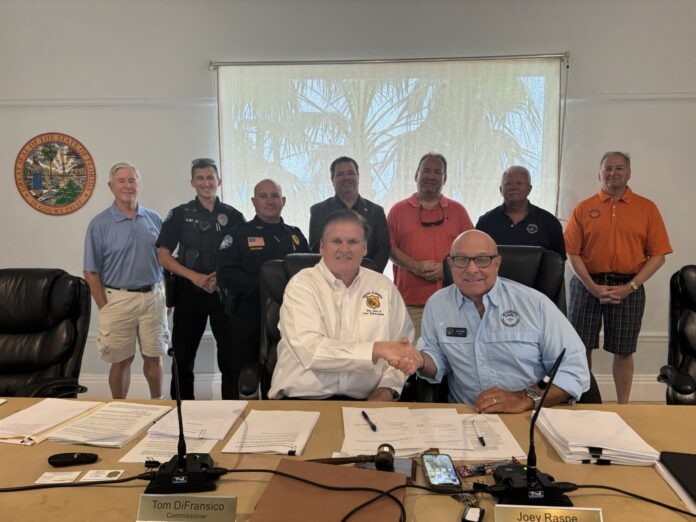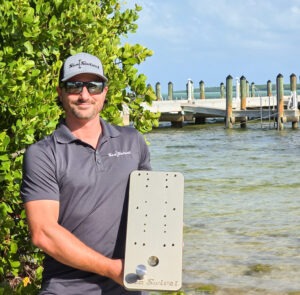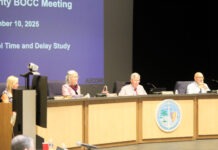
A proposal considered by the Key Colony Beach Commission at its June 20 session could potentially send 18 of the 22 building rights from a destroyed condo complex to the city of Marathon. But the proposal raises questions of whether KCB could be forced to participate in the restrictive Rate of Growth Ordinance (ROGO)/Building Permit Allocation System (BPAS), which governs development in the majority of the Keys, for the first time.
Developer Luis Alonso opened Thursday’s session with a proposal that would see the previous 22-unit Oceanfront Apartments complex on West Ocean Drive, destroyed in Hurricane Irma, rebuilt as four single-family homes. The remaining 18 building rights from the complex, he said, could be sent to Marathon for use within the city limits via an interlocal agreement.
“This proposal will have lower density, less traffic and increased tax revenues for the city of KCB,” Alonso said, adding that neighboring property owners were in favor of rebuilding the now-vacant lot at the lower density.
Speaking to the commission, land use director Donald Craig of the Spottswood Law Firm said that the units in question, built in 1964, are exempt from the ROGO/BPAS regulations enacted decades later, and argued that they would retain that designation if transferred to Marathon. As the move would be an unprecedented transfer, he said Alonso would agree to reserve $100,000 to compensate for staff time and legal fees needed to accomplish the move.
Marathon Planning Director Brian Shea said that while Marathon was “not averse” to units coming into the city, as has been previously done through agreements with Monroe County, “(KCB) does not have the mechanism in place at this time” to accomplish the task.
“You would have to enter the ROGO/BPAS process first, and then work towards ordinances for Transferable Building Rights (TBRs) and determination of building rights,” he said. “Until that happens, there is no mechanism to move (the rights) from KCB to Marathon.”
“I respectfully disagree with Brian with regard to the need to create a mechanism that recognizes BPAS allocations in Key Colony Beach,” Craig said. “State law allows wide latitude in the adoption of interlocal agreements when it is beneficial for both cities to do so. … If the state for any reason were to say ‘No, you can’t do it,’ then this would end.”
Commissioner Tom DiFransico raised questions of equity for other KCB property owners if a transfer agreement were to only apply to the Oceanfront Apartments units. All five commissioners agreed that the city would have no interest in proceeding if the transfer could jeopardize KCB’s longstanding ROGO-exempt status, a stipulation Craig said was “essential” to consider the proposal.
“That’s something that is mandatory for us,” DiFransico said. “We would not want to go forward with this if there was a risk of that for us.”
City Attorney Dirk Smits called the idea “an undertaking,” reminding the commission that KCB is one small area not bound by regulations governing the rest of the Florida Keys as an Area of Critical State Concern.
“We could be sticking our head into the ROGO noose,” he said. “The ripple effect is what I fear the most … because (the transfer) is so unique.”
The commission granted Alonso’s team permission to begin tentative work with KCB, Marathon and state staff to explore the possibility of the transfer, with explicit clarification that Key Colony could withdraw from the proceedings at any time for any reason.
Police union finalized
Following a year of negotiations, the Key Colony Beach Police Department became the last municipal police force in the Keys to unionize, courtesy of a contract with the South Florida Police Benevolent Association unanimously approved and signed on June 20.
“This is a huge step in the right direction for your law enforcement, and I thank you for that,” said South Florida PBA attorney Andrew Axelrad.
“When you make an investment into public safety, which you have, it will come back to you 10 times over,” said South Florida PBA president Steadman Stahl. “I know sometimes unions scare elected officials … but we’re here to be a partner, not adversarial.”























